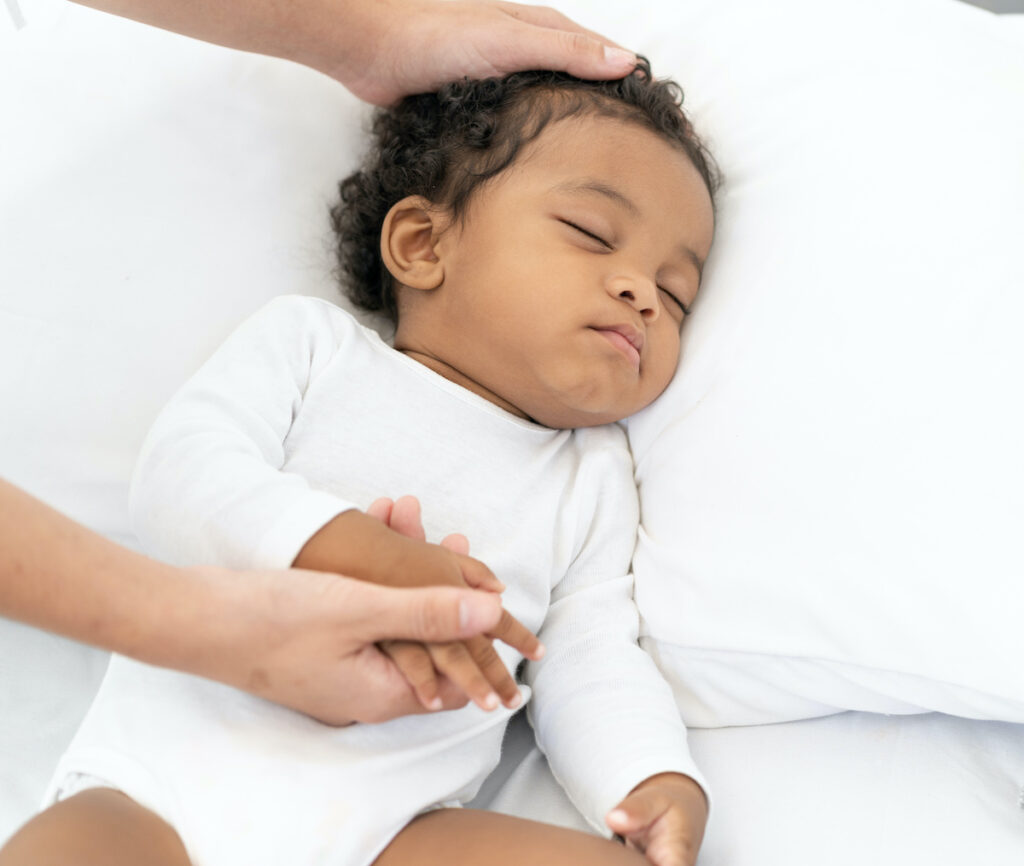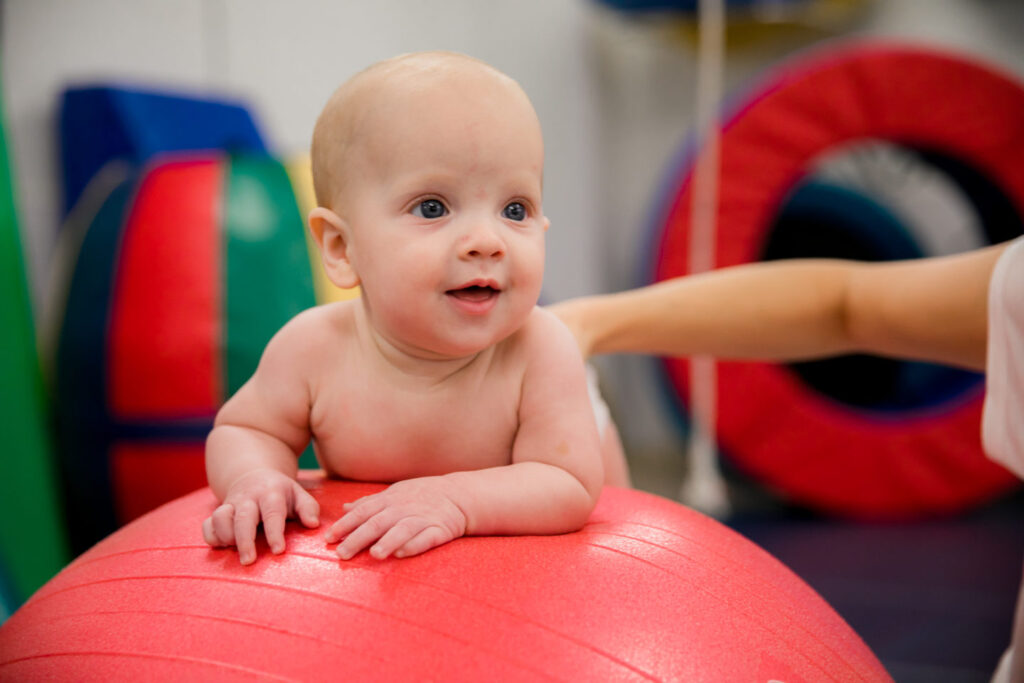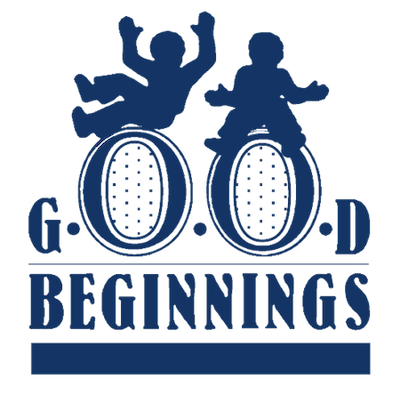Torticollis Therapy
Our play-based and parent friendly approach to torticollis therapy focuses on gentle exercises that can easily be incorporated into your daily routine.
We believe evidence based medicine is the best route to achieving you and your baby’s goals. We follow the Academy of Pediatric Physical Therapy’s Clinical Practice Guideline for torticollis management. Here is the link to CPG for more information targeted for parents and caregivers: Congenital Muscular Torticollis Clinical Practice Guideline & Implementation Resources (pediatricapta.org)

Causes
Torticollis is fairly common in babies and children. Torticollis may be present at birth (congenital). Or it may develop later in infancy or childhood (acquired).
The shortening of one of your baby’s sternocleidomastoid muscles (SCMs) causes congenital torticollis, while acquired torticollis frequently occurs because of swelling in your child’s throat – causing the tissues surrounding your child’s upper spine to loosen.
Other causes of acquired torticollis may include:
- Gastroesophageal reflux (GERD)
- Vision problems
- Scar tissue
- Arthritis of the neck (cervical spondylosis)
- Sandifer syndrome, a rare condition that combines GERD with neck spasms.
- Plagiocephaly
Symptoms
Torticollis occurs when your baby’s neck muscles cause their head to turn and rotate to one side. It can be congenital or acquired. It can be congenital or acquired.
Symptoms of Torticollis may include:
- Your baby’s head tilts to one side and chin tilts to the other side.
- Limited movement of your baby’s head and neck.
- Challenges with feeding, especially on one breast vs. the other
- Your child is always looking in one direction
- Neck muscle tightness or stiffness.
- Swollen neck muscles.
- Small pea-sized lump in one of your baby’s neck muscles.
- Uneven (asymmetrical) facial features.
- Neck pain


Treatment
Our torticollis therapy includes the following:
- Range of motion exercises
- Muscle strengthening and neuromuscular re-education exercises
- Motor development exercises
- Feeding assistance
- Equipment recommendations
- Patient and caregiver education
I can’t say enough amazing things about Good Beginnings and their staff! I was having difficulty with my daughter, but couldn’t articulate or understand what the issue was. The evaluation was extremely helpful in diagnosing and understanding her better and helped to show us a road forward. Once we started therapy, We saw so much progress with my daughter even within just a few weeks. She absolutely loved going because of the fun & caring atmosphere. I highly encourage any parent struggling to reach out to Good Beginnings.
After eight months with our therapists at Good Beginnings, our daughter walks straight, auditory processing delay is minimized, and she knows all her numbers and letters! The therapists established a unique, most beneficial relationship with our daughter, with an optimal, individualized approach to each and every session.
Calling Sara Weiser was the only person I felt comfortable contacting when I began my journey after the birth of my son. She was the OT for my classroom during my first year teaching special education. Good Beginnings expertly diagnosed him at 2 months old and he began a treatment plan for Torticollis and delayed reflexes. At 18 months old, they expertly diagnosed him with OT and PT deficits and we began a treatment plan that he was on for 3-4 years, with yearly check ins after that. Today at 12, he is a thriving competitive athlete in baseball, wrestling, and flag football and successful Dean’s list student. I wouldn’t recommend anywhere else

